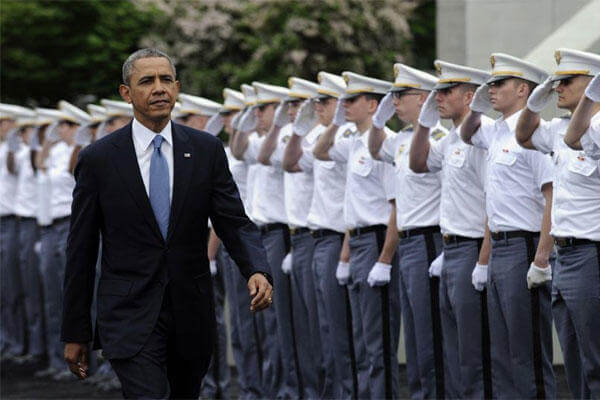White House officials on Tuesday outlined a range of reforms for the Veterans Affairs Department to include enhanced protections for GI Bill education benefits and a renewed push to end veterans' homelessness.
President Obama was expected to announce the proposals, which combine new and old initiatives, with most requiring the approval of Congress, on Veterans Day. But he stopped short of citing the specific proposals during a speech at Arlington National Cemetery, saying the U.S. needs to do more to support returning veterans.
If put into practice, "these steps will ensure that veterans have the opportunities and assistance they need to help grow our economy and realize the American Dream," the White House said in a lengthy fact sheet on the proposals.
One step the White House was taking on its own was approving a new agreement between the VA and the Federal Trade Commission to stop GI Bill fraud.
The commission will be given the authority "to provide enhanced oversight and strengthen enforcement against schools that engage in deceptive or misleading advertising, sales or enrollment practices towards veterans," the White House said.
The VA will also be launching a "new and improved GI Bill Comparison Tool" aimed at giving vets for the first time outcome measures on graduation and retention rates at schools they may be considering.
Since the post-9/11 GI Bill was enacted in 2009, the VA has provided more than $57 billion in education benefits to over 1.5 million individuals and their educational institutions, the White House said.
In a conference call, the White House officials also said that the VA and the Department of Housing and Urban Development had made significant progress in reducing the number of veterans who live on the street, but they acknowledged that the administration would not be able to achieve its goal of ending veterans' homelessness by the end of this year.
"We've made enormous strides," said Kristie Canegallo, the White House deputy chief of staff, in reducing homelessness by 36 percent, but there were still some 50,000 homeless vets on the streets.
The White House officials also claimed major progress in improving access to health care, reducing the backlog of claims and boosting VA staffing. However, the refrain from Cecilia Munoz, the White House Domestic Policy Council director, was that "there is still much work to be done."
--Richard Sisk can be reached at Richard.Sisk@military.com.






























